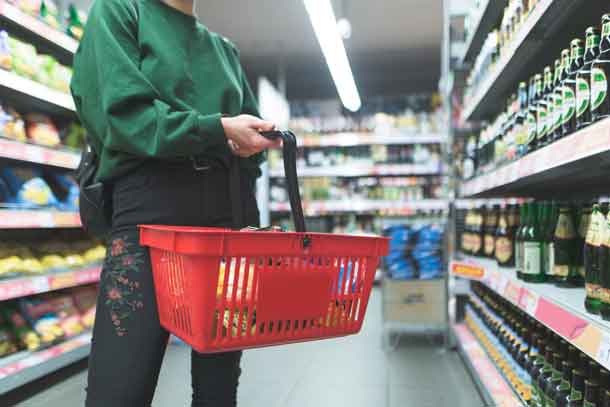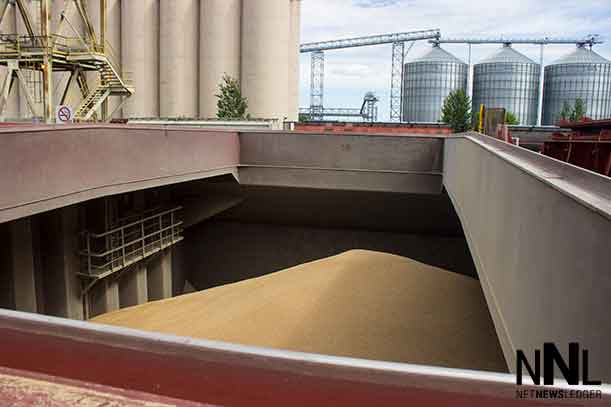If you feel you’re paying more for food, it’s not an illusion
By Sylvain Charlebois
Professor
Dalhousie University
The Conservative Party of Canada recently promised to control food inflation for Canadians. It’s an odd promise for a party typically known to embrace market-free conditions but it holds great potential.
What makes this promise even more atypical is that Canadians have access to one of the most affordable food baskets in the world, 18th on the list compiled by the Global Food Security Index. That rating could be better, but it’s not bad.
Canada is ranked with Switzerland, France, the United Kingdom and Israel, and rates No. 10 in food quality and safety, according to the same index.
Canada isn’t doing too poorly, then, so having government tackle food inflation may seem a little strange. But Canadians are feeling pinched by what’s coming from the food industry, having to pay more at the grocery store or buying a meal in food service.
If you feel you’re paying more for food, it’s not an illusion. An average family of four in Canada is paying about $1,000 more for their food since January 2020. And no sector is immune to systemic pressures affecting the industry.
It’s practically impossible for governments to control macro-variables that indirectly affect food prices – like interest rates, the effects of the pandemic on global logistics, climate change, currency wars and labour woes, especially during a four-year mandate.
Openly stating to Canadians that food prices at retail should be lowered or, at least, controlled would simply be foolish and irresponsible.
Controlling food prices at retail isn’t something most Canadians want or should want. It rarely works for everyone.
For example, Quebec controls the price of fluid milk at retail and it’s been a disaster for consumers. Milk is very expensive in Quebec because regulatory mechanisms barely give room for consumers to advocate for themselves. Industry lawyers and lobby groups will always overpower the welfare of consumers, especially those with limited means.
Controlling prices or even nationalizing parts of our food distribution system would only lead to higher food prices and discourage investments and innovation – domestically and from abroad. And it would mean fewer choices to consumers. The quality of food products for Canadians would surely be compromised.
But that’s not what the Conservatives are promising. Their plan is to tackle innate market conditions that could impact food prices at retail and up the food chain.
The Conservatives want to end criminal behaviour or at least punish it. The bread price-fixing scandal revealed by Loblaw and Weston Bakeries in 2017 was troubling. For 14 years, bread prices were artificially inflated through industry collusion. According to Statistics Canada, bread prices went up 116 per cent, making it one of our food products that increased the most during that period.
After the scheme ended, bread prices dropped by 17 per cent within two years.
If an average family bought two loaves of bread a week, Canadians might have collectively overpaid for bread by more than $1 billion during the price-fixing scheme.
Canada’s Competition Bureau has known about the situation since 2015, yet no one has paid a fine or gone to jail. The investigation continues after six years.
In comparison, the U.S. Department of Justice recently indicted 14 former executives and managers employed at poultry processing companies for price-fixing. The scheme allegedly ran from as early as 2012 to 2019.
Collusion undermines consumer trust. Governments ought to play a more active role in making sure these schemes are severely condemned in Canada.
The other promise made by the Conservatives is related to supply-chain bullying. For years, major food retailers have unilaterally imposed fees on food suppliers, impacting our food processing sector’s competitiveness. Smaller companies – often family-operated – are severely penalized by these fees, making it impossible for them to compete.
A new, effective code of conduct with some government-led oversight would create predictable, workable market conditions for processors and grocers.
Processors don’t mind paying fees, lowering list prices and offering discounts to grocers. But grocers have a lot of power in Canada and have gone too far in recent years. Their outrageous pricing tactics have impacted many food companies and farmers in Canada and elsewhere.
The challenge is to protect our food processing sector while making sure grocers serve the public well, with competitive prices. A few other countries have done this, with encouraging results.
Conservative Leader Erin O’Toole is reading the food landscape very well. The Conservatives are the only party daring to tackle the hidden, dark side of food distribution. They want to give innovation, competitiveness and fair pricing a chance without regulating retail prices. It’s a clever plan.
Before the COVID-19 pandemic, hardly any Canadians cared about supply-chain tactics and oligopolistic powers within the industry. Now, pointing out the hidden ills of our food system has gained political traction. Let’s hope other parties follow the Conservatives’ lead.
Dr. Sylvain Charlebois is senior director of the agri-food analytics lab and a professor in food distribution and policy at Dalhousie University.








